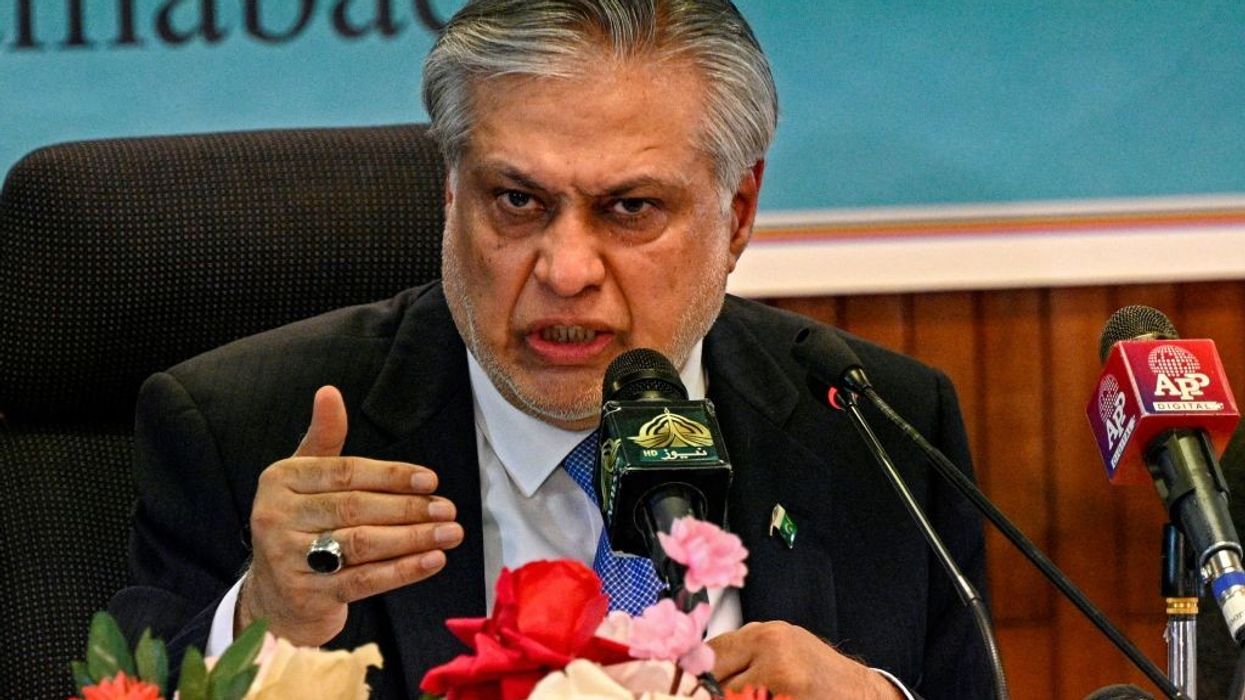PAKISTAN'S central bank has received $1.2 billion from the IMF as the first tranche of a $3 bn bailout to stabilise the economy, Finance Minister Ishaq Dar said on Thursday (13), a day after the global lender's board approved the package.
Having teetered on the brink of a sovereign debt default, Pakistan earlier this week also received $1 bn from the United Arab Emirates and $2 bn from Saudi Arabia, as both were reassured by the agreement struck between Islamabad and the International Monetary Fund at the end of June.
In a televised address, Dar said the first installment of the IMF money had arrived in the State Bank of Pakistan's account.
"The goal of this SBA (Standby Arrangement) is to provide a policy anchor for Pakistan to address its domestic and external economic imbalances in the coming period, as well as provide a framework for external financial support by multilateral and bilateral partners, including fresh financing and rollover of debts that are coming due," an IMF official told reporters in an online briefing on Thursday.
Pakistan's sovereign bonds and rupee gained on Thursday following the IMF board's approval.
The rupee rose one per cent to 274.5 per dollar in the interbank market, though it had been up by as much as two per cent in early trade.
Pakistan's sovereign dollar bonds strengthened as much as 1.7 cents, Tradeweb data showed on Thursday. A bond maturing in 2027 rose 1.75 cents to hit a 10-month high of just over 53 cents on the dollar by 0629 GMT, while a 2024 maturity was trading just under 80 cents, its highest in more than a year.
IMF projections
An IMF statement said the rescue programme would focus on an appropriately tight monetary policy aimed at curbing price pressures in the South Asian country of 220 million people.
The IMF expects inflation to average 25.9 per cent in fiscal year 2024, though it anticipates a substantial moderation to around 16 per cent towards the end of that period.
With the key policy rate at 22 per cent, the government has projected inflation at 21 per cent for fiscal 2024.
"A continued tight, proactive and data-driven monetary policy is warranted going forward," the IMF statement said.
The ailing Pakistani economy has faced an acute balance of payments crisis with only enough central bank reserves to cover barely a month of controlled imports. The IMF projects it will have an import cover of 1.4 months in fiscal 2024.
The IMF deal, a lifeline for Pakistan after it was on the cusp of default, came after eight months of tough negotiations over fiscal discipline.
"A market-determined exchange rate is also critical to absorbing external shocks, reducing external imbalances, and restoring growth, competitiveness, and buffers," the IMF said.
(Reuters)




